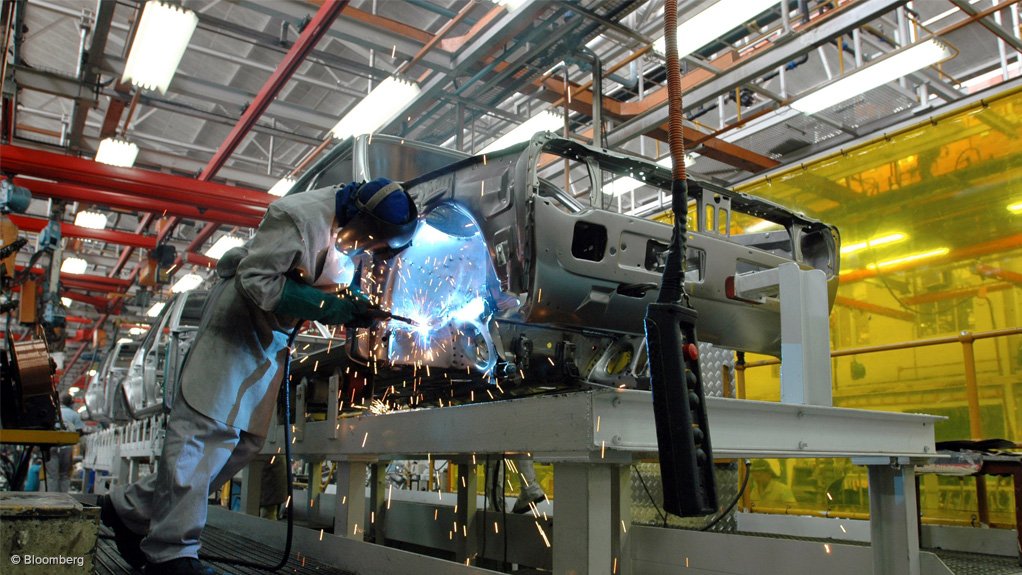APDP needs to change substantially post 2020, says component maker
The Automotive Production and Development Programme (APDP) would need to change substantially post 2020, said Metair Investments South African operations COO Ken Lello on Wednesday.
“We must not make tweaks. We have to change. What we are doing is not sustainable.”
Lello was the architect of the submission by the National Association of Automotive Component and Allied Manufacturers (Naacam) in government’s review of the APDP.
The review had been completed, but still awaited sign-off from government.
The APDP, which took effect in 2013, was set to end in 2020, but the Department of Trade and Industry had on a number of occasions indicated that it would continue to support the local automotive industry past this date.
Speaking at an APDP workshop at Automechanika 2015, in Johannesburg, Lello said he expected the current review to deliver only minor tweaks to the support programme. Despite this, he hoped any changes to the APDP would still manage to increase parts localisation and employment.
Any new post-2020 APDP-type programme, however, would require “a lot of change and a lot of pain”, he emphasised.
“In my view we need a big change.”
Lello added that it was important for a new programme to be on the table within the next 18 to 24 months.
This would provide the South African automotive industry with the certainty required to make investment decisions, while also giving adequate time to “react and adjust” to the new policy.
DUTY REBATE SYSTEM FLAWED
The duty rebate and incentive system, as structured in the current APDP, protected vehicle manufacturers from imported products, but not component manufacturers, said Lello.
It did little to boost the localisation of parts on locally assembled vehicles, but instead saw South Africa’s vehicle manufacturers import more and more vehicles and parts.
“An OEM [original equipment manufacturer, or vehicle manufacturer] can set up a plant here and export 60% of its volume, and have no need for any local [component] content. That is a fundamental problem under the APDP,” said Lello.
He believed that the duty rebates payable to local vehicle manufacturers under the APDP had seen South Africa’s actual net duty rate on imported vehicles reach around the 5% level - similar to Australia - rather than the 25% officially levied on fully built-up imported vehicles.
Australia’s automotive manufacturing industry was set to close down over the next few years.
“OEMs are localising vehicles and producing vehicles locally, yes, but to the point of duty neutrality. They are not exporting vehicles because South Africa is competitive. They are exporting to get duty rebates to be able to import vehicles to sell in this country.”
Lello emphasised that there was “zero protection” for the component industry, with no real development of tier two component manufacturers.
“We had more localisation in 1995.”
He said the APDP appeared successful, but noted that some numbers proved otherwise.
South Africa produced 563 000 vehicles in 2006, under the support programme which preceded the APDP, the Motor Industry Development Programme. In 2014, under the APDP, production was 533 000 units.
In 2006, South Africa produced 0.85% of the world’s vehicles, and in 2014 this was 0.59%.
“Had we been successful, we would have stayed at 0.8%. We would have grown in line with global industry,” said Lello.
“We have become structurally set at 600 000 units [a year]. We need to stop blaming strikes and the economic downturn.”
Lello said the ideal automotive support programme would be able to drive down the price of any vehicle that left South Africa for the export markets.
“If we want to compete globally, we need any vehicle made here to leave at a competitive price.
“We need to become competitive from the bottom up.”
This could be achieved through cash grants or tooling rebates, for example, and not duty rebates.
Increased protection would also help.
In Thailand, for example, duties and taxes on imported vehicles added up to more than 150%.
Lello said the way forward for government and automotive industry was to understand and embrace “the need to change”.
Comments
Press Office
Announcements
What's On
Subscribe to improve your user experience...
Option 1 (equivalent of R125 a month):
Receive a weekly copy of Creamer Media's Engineering News & Mining Weekly magazine
(print copy for those in South Africa and e-magazine for those outside of South Africa)
Receive daily email newsletters
Access to full search results
Access archive of magazine back copies
Access to Projects in Progress
Access to ONE Research Report of your choice in PDF format
Option 2 (equivalent of R375 a month):
All benefits from Option 1
PLUS
Access to Creamer Media's Research Channel Africa for ALL Research Reports, in PDF format, on various industrial and mining sectors
including Electricity; Water; Energy Transition; Hydrogen; Roads, Rail and Ports; Coal; Gold; Platinum; Battery Metals; etc.
Already a subscriber?
Forgotten your password?
Receive weekly copy of Creamer Media's Engineering News & Mining Weekly magazine (print copy for those in South Africa and e-magazine for those outside of South Africa)
➕
Recieve daily email newsletters
➕
Access to full search results
➕
Access archive of magazine back copies
➕
Access to Projects in Progress
➕
Access to ONE Research Report of your choice in PDF format
RESEARCH CHANNEL AFRICA
R4500 (equivalent of R375 a month)
SUBSCRIBEAll benefits from Option 1
➕
Access to Creamer Media's Research Channel Africa for ALL Research Reports on various industrial and mining sectors, in PDF format, including on:
Electricity
➕
Water
➕
Energy Transition
➕
Hydrogen
➕
Roads, Rail and Ports
➕
Coal
➕
Gold
➕
Platinum
➕
Battery Metals
➕
etc.
Receive all benefits from Option 1 or Option 2 delivered to numerous people at your company
➕
Multiple User names and Passwords for simultaneous log-ins
➕
Intranet integration access to all in your organisation



















